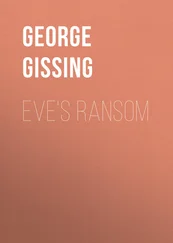George Gissing - Will Warburton
Здесь есть возможность читать онлайн «George Gissing - Will Warburton» — ознакомительный отрывок электронной книги совершенно бесплатно, а после прочтения отрывка купить полную версию. В некоторых случаях можно слушать аудио, скачать через торрент в формате fb2 и присутствует краткое содержание. Жанр: foreign_prose, literature_19, foreign_antique, на английском языке. Описание произведения, (предисловие) а так же отзывы посетителей доступны на портале библиотеки ЛибКат.
- Название:Will Warburton
- Автор:
- Жанр:
- Год:неизвестен
- ISBN:нет данных
- Рейтинг книги:4 / 5. Голосов: 1
-
Избранное:Добавить в избранное
- Отзывы:
-
Ваша оценка:
- 80
- 1
- 2
- 3
- 4
- 5
Will Warburton: краткое содержание, описание и аннотация
Предлагаем к чтению аннотацию, описание, краткое содержание или предисловие (зависит от того, что написал сам автор книги «Will Warburton»). Если вы не нашли необходимую информацию о книге — напишите в комментариях, мы постараемся отыскать её.
Will Warburton — читать онлайн ознакомительный отрывок
Ниже представлен текст книги, разбитый по страницам. Система сохранения места последней прочитанной страницы, позволяет с удобством читать онлайн бесплатно книгу «Will Warburton», без необходимости каждый раз заново искать на чём Вы остановились. Поставьте закладку, и сможете в любой момент перейти на страницу, на которой закончили чтение.
Интервал:
Закладка:
"Suppose you just tell me what has happened," she added quietly.
"Yes, I will. I hope you haven't been thinking it was some fault of his ?"
"I couldn't help thinking that."
"Oh! Put that out of your mind at once. The fault is altogether mine. He has done nothing whatever—he is good and true, and all that a man should be. It's I who am behaving badly; so badly that I feel hot with shame now that I come to tell you. I have broken it off. I've said I couldn't marry him."
Their eyes met for an instant. Bertha looked rather grave, but with her wonted kindliness of expression; Rosamund's brows were wrinkled in distress, and her lips trembled.
"I've seen it coming since last Christmas," she continued, in a hurried, tremulous undertone. "You know he came down to Bath; that was our last meeting; and I felt that something was wrong. Ah, so hard to know oneself! I wanted to talk to you about it; but then I said to myself—what can Bertha do but tell me to know my own mind? And that's just what I couldn't come to,—to understand my own feelings. I was changing, I knew that. I dreaded to look into my own thoughts, from day to day. Above all, I dreaded to sit down and write to him. Oh, the hateful falsity of those letters—Yet what could I do, what could I do? I had no right to give such a blow, unless I felt that anything else was utterly, utterly impossible."
"And at last you did feel it?"
"In Switzerland—yes. It came like a flash of lightning. I was walking up that splendid valley—you remember my description—up toward the glacier. That morning I had had a letter, naming the very day for our marriage, and speaking of the house—your house at Putney—he meant to take. I had said to myself—'It must be; I can do nothing. I haven't the courage.' Then, as I was walking, a sort of horror fell upon me, and made me tremble; and when it passed I saw that, so far from not having the courage to break, I should never dare to go through with it. And I went back to the hotel, and sat down and wrote, without another moment's thought or hesitation."
"What else could you have done?" said Bertha, with a sigh of relief. "When it comes to horror and tremblings!"
There was a light in her eye which seemed the precursor of a smile; but her voice was not unsympathetic, and Rosamund knew that one of Bertha Cross smiles was worth more in the way of friendship than another's tragic emotion.
"Have patience with me," she continued, "whilst I try to explain it all. The worst of my position is, that so many people will know what I have done, and so few of them, hardly any one, will understand why. One can't talk to people about such things. Even Winnie and father—I'm sure they don't really understand—though I'm afraid they're both rather glad. What a wretched thing it is to be misjudged. I feel sure, Bertha, that it's just this kind of thing that makes a woman sit down and write a novel—where she can speak freely in disguise, and do herself justice. Don't you think so?"
"I shouldn't wonder," replied the listener, thoughtfully. "But does it really matter? If you know you're only doing what you must do?"
"But that's only how it seems to me. Another, in my place, would very likely see the must on the other side. Of course it's a terribly complicated thing—a situation like this. I haven't the slightest idea how one ought to be guided. One could argue and reason all day long about it—as I have done with myself for weeks past."
"Try just to tell me the reason which seems to you the strongest," said Bertha.
"That's very simple. I thought I loved him, and I find I don't."
"Exactly. But I hardly see how the change came about."
"I will try to tell you," replied Rosamund. "It was that picture, 'Sanctuary,' that began it. When I first saw it, it gave me a shock. You know how I have always thought of him—an artist living for his own idea of art, painting just as he liked, what pleased him, without caring for the public taste. I got enthusiastic; and when I saw that he seemed to care for my opinion and my praise—of course all the rest followed. He told me about his life as an art student—Paris, Rome, all that; and it was my ideal of romance. He was very poor, sometimes so poor that he hardly had enough to eat, and this made me proud of him, for I felt sure he could have got money if he would have condescended to do inferior work. Of course, as I too was poor, we could not think of marrying before his position improved. At last he painted 'Sanctuary.' He told me nothing about it. I came and saw it on the easel, nearly finished. And—this is the shocking thing—I pretended to admire it. I was astonished, pained—yet I had the worldliness to smile and praise. There's the fault of my character. At that moment, truth and courage were wanted, and I had neither. The dreadful thing is to think that he degraded himself on my account. If I had said at once what I thought, he would have confessed—would have told me that impatience had made him untrue to himself. And from that day; oh, this is the worst of all, Bertha—he has adapted himself to what he thinks my lower mind and lower aims; he has consciously debased himself, out of thought for me. Horrible! Of course he believes in his heart that I was a hypocrite before. The astonishing thing is that this didn't cause him to turn cold to me. He must have felt that, but somehow he overcame it. All the worse! The very fact that he still cared for me shows how bad my influence has been. I feel that I have wrecked his life, Bertha—and yet I cannot give him my own, to make some poor sort of amends."
Bertha was listening with a face that changed from puzzled interest to wondering confusion.
"Good gracious!" she exclaimed when the speaker ceased. "Is it possible to get into such entanglements of reasoning about what one thinks and feels? It's beyond me. Oh they're bringing the tea. Perhaps a cup of tea will clear my wits."
Rosamund at once began to speak of the landscape by Leader, which hung near them, and continued to do so even after the servant had withdrawn. Her companion was silent, smiling now and then in an absent way. They sipped tea.
"The tea is doing me so much good," Bertha said, "I begin to feel equal to the most complicated reflections. And so you really believe that Mr. Franks is on the way to perdition, and that you are the cause of it?"
Rosamund did not reply. She had half averted her look; her brows were knit in an expression of trouble; she bit her lower lip. A moment passed, and—
"Suppose we go into the garden," she said, rising. "Don't you feel it a little close here?"
They strolled about the paths. Her companion, seeming to have dismissed from mind their subject of conversation, began to talk of Egypt, and the delight she promised herself there.
Presently Bertha reverted to the unfinished story.
"Oh, it doesn't interest you."
"Doesn't it indeed! Please go on. You had just explained all about 'Sanctuary'—which isn't really a bad picture at all."
"Oh, Bertha!" cried the other in pained protest. "That's your good nature. You never can speak severely of anybody's work. The picture is shameful, shameful! And its successor, I am too sure, will be worse still, from what I have heard of it. Oh, I can't bear to think of what it all means—Now that it's too late, I see what I ought to have done. In spite of everything and everybody I ought to have married him in the first year, when I had courage and hope enough to face any hardships. We spoke of it, but he was too generous. What a splendid thing to have starved with him—to have worked for him whilst he was working for art and fame, to have gone through and that together, and have come out triumphant! That was a life worth living. But to begin marriage at one's ease on the profits of pictures such as 'Sanctuary'—oh, the shame of it! Do you think I could face the friends who would come to see me?"
Читать дальшеИнтервал:
Закладка:
Похожие книги на «Will Warburton»
Представляем Вашему вниманию похожие книги на «Will Warburton» списком для выбора. Мы отобрали схожую по названию и смыслу литературу в надежде предоставить читателям больше вариантов отыскать новые, интересные, ещё непрочитанные произведения.
Обсуждение, отзывы о книге «Will Warburton» и просто собственные мнения читателей. Оставьте ваши комментарии, напишите, что Вы думаете о произведении, его смысле или главных героях. Укажите что конкретно понравилось, а что нет, и почему Вы так считаете.












